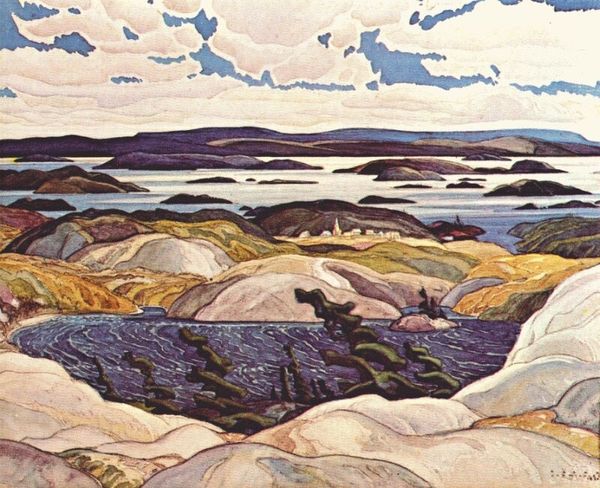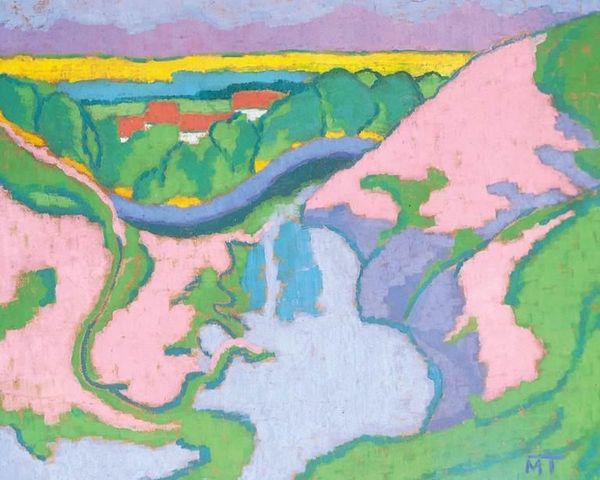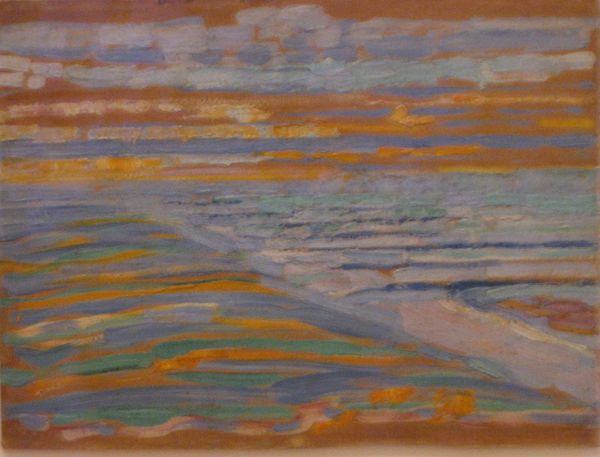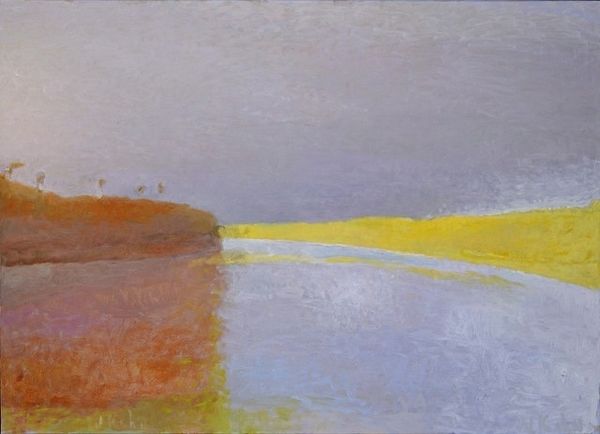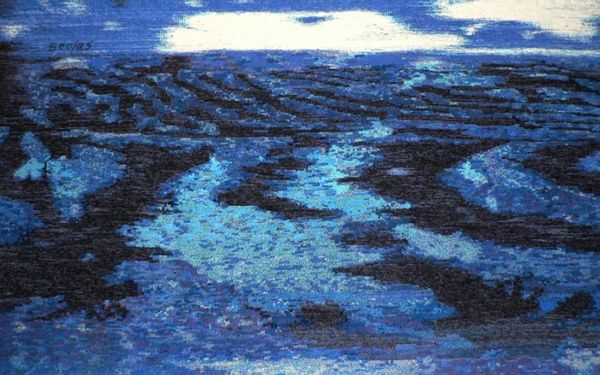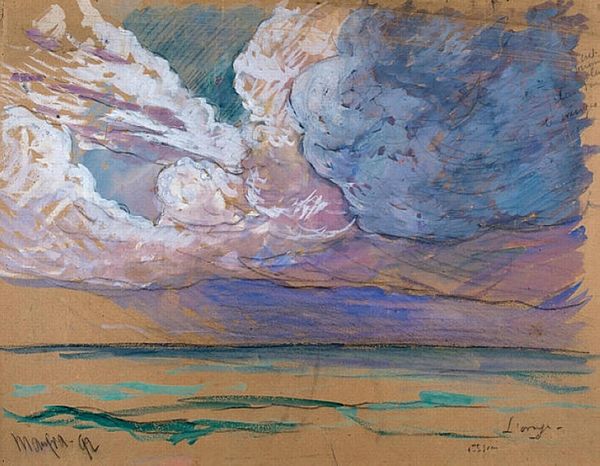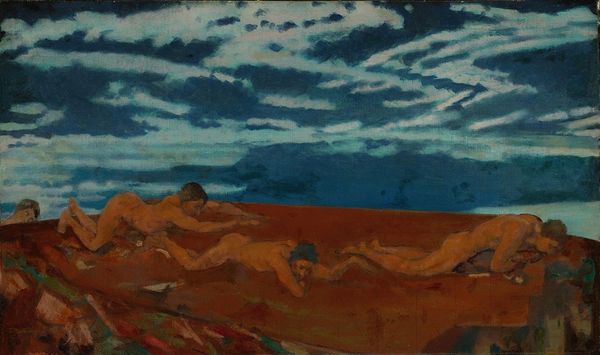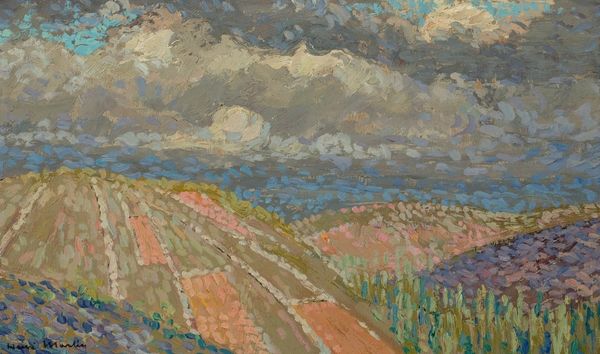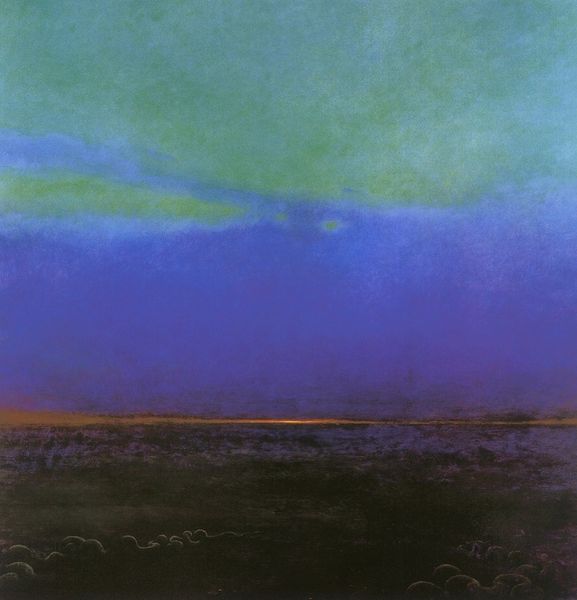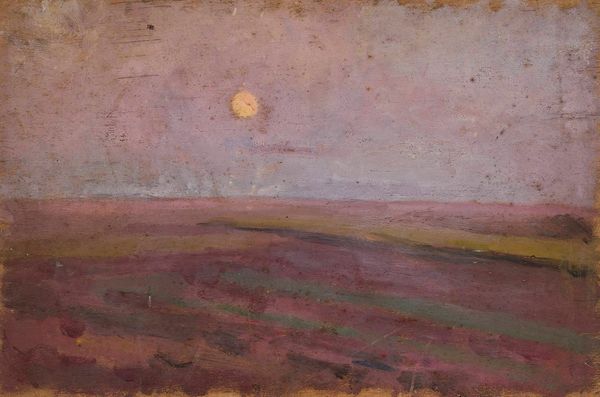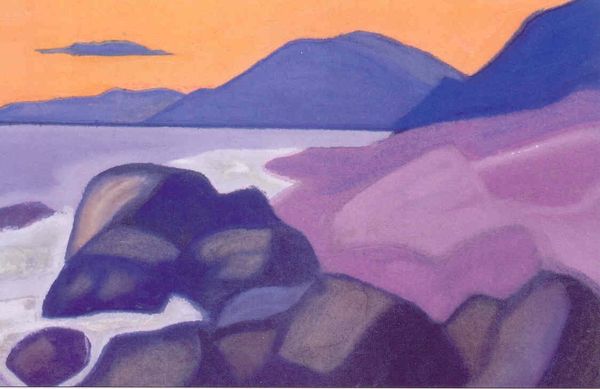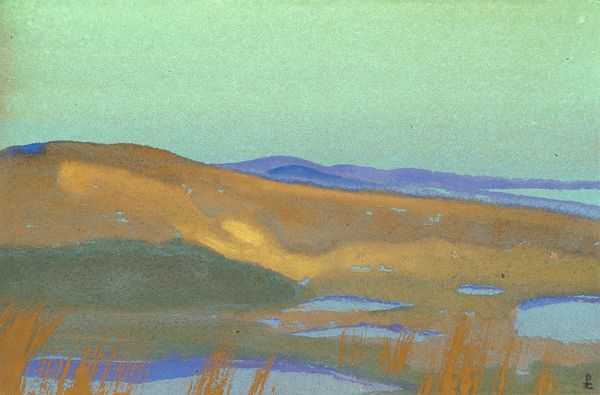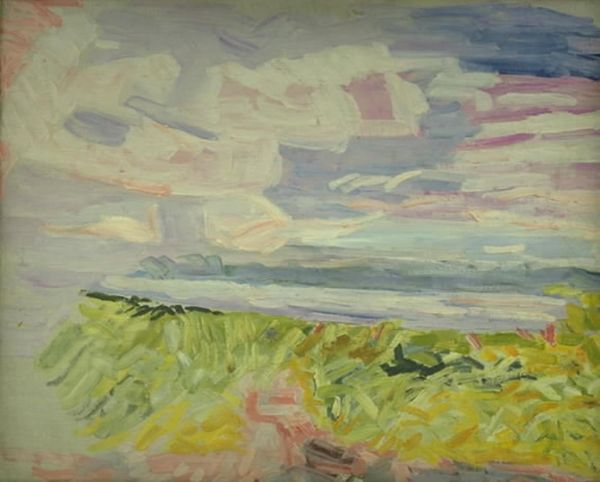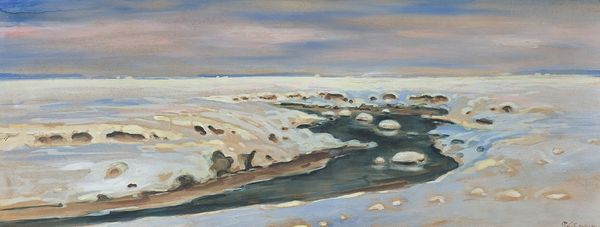
painting, oil-paint
#
cubism
#
abstract expressionism
#
painting
#
oil-paint
#
pattern
#
landscape
#
geometric
#
geometric-abstraction
#
abstraction
#
line
#
abstract art
#
modernism
Dimensions: 141 x 239 cm
Copyright: Public domain
Curator: This is Piet Mondrian’s "Dune Landscape," painted in 1911. You can find it on display at the Gemeentemuseum in The Hague. Painted with oil on canvas, this artwork stands as a compelling example of early modernism. Editor: My first impression? A deep, breathy hush. It feels like standing at twilight, watching the land breathe in the last of the day’s light. The composition is stark. Curator: The constrained palette certainly lends to that. Look at the deliberate brushstrokes. You can clearly see how Mondrian employs layering and texture to build up this abstracted vista. It’s less about realistic depiction and more about deconstructing the landscape. We should observe that he completed it before fully transitioning to his signature geometric style. Editor: Absolutely. There's something so raw about the visible brushwork—almost vulnerable, don’t you think? It betrays a struggle, a seeking…it's very personal. This tension between the observed world and abstraction creates such an emotional pull. It whispers rather than shouts. Curator: Precisely. We also have to consider the socio-cultural context. Early 20th century Holland saw growing industrialization. Artists began to explore how to represent changing perspectives. Mondrian sought to grasp the essential forms of the natural world while the cultural landscape transformed around him. The visible labor—his brushstrokes—hints at the manual effort inherent to earlier ways of life, almost as a contrast to encroaching industrial mechanization. Editor: Ah, I see what you mean. A quiet protest, perhaps, rendered in strokes of twilight. Thinking about the industrialization aspect, it makes the subtle geometry even more poignant. The dunes aren’t chaotic; they're ordered, but in a soft, yielding way. Curator: Well, looking closely reveals the underlying order Mondrian sought in everything, I think. I suppose both are essential, like material and spirit, perhaps? Editor: Maybe it all melts down into interconnectedness and interdependence. Either way, I certainly wouldn't mind watching twilight descend on those dunes.
Comments
No comments
Be the first to comment and join the conversation on the ultimate creative platform.
